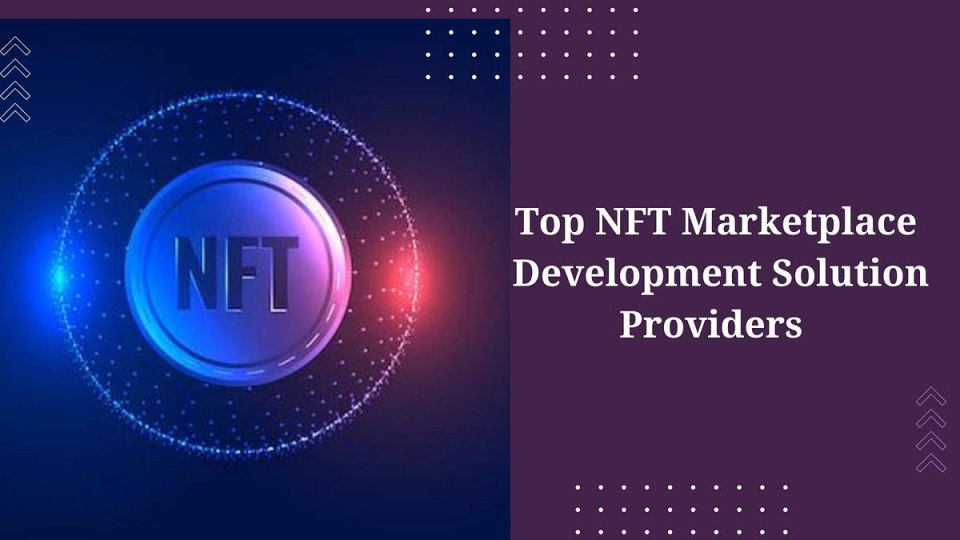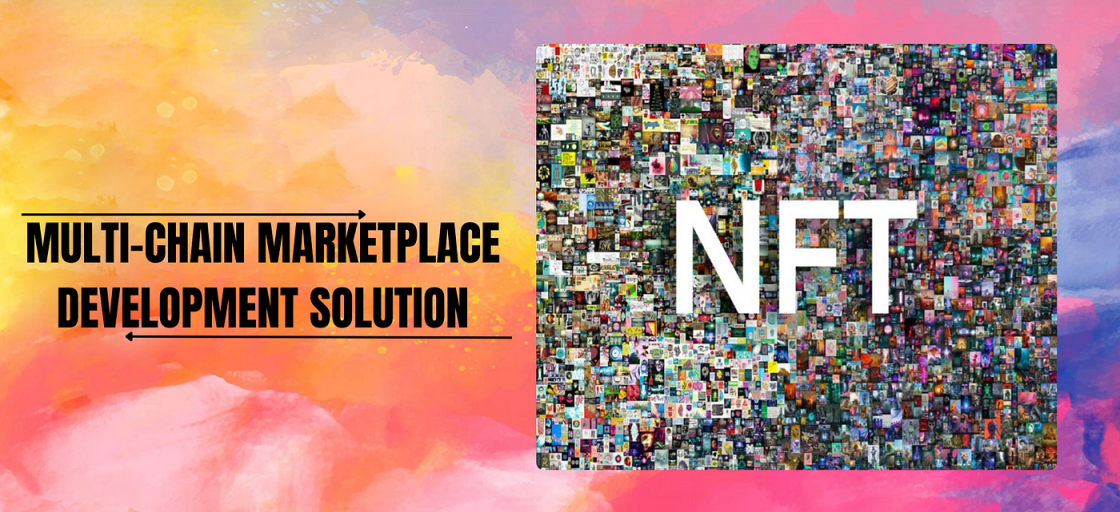NFT Marketplace Development Solution
Introduction
Hello NFT Enthusiasts,
Welcome to the world of NFT Marketplace Development Solution, where digital art meets blockchain technology. In this article, we will explore the ins and outs of NFT marketplaces, discuss their benefits, and shed light on how they have revolutionized the art industry.

Image Source: imgur.com
So, buckle up and join us on this informative journey as we dive deep into the realm of NFTs.
What is NFT Marketplace Development Solution?
NFT Marketplace Development Solution refers to the process of creating a platform where users can buy, sell, and trade non-fungible tokens (NFTs). NFTs are unique digital assets that are stored on a blockchain, providing verifiable ownership and provenance.
With the rise of blockchain technology, NFTs have gained immense popularity, especially in the art world. Artists can tokenize their creations as NFTs, allowing them to sell their work directly to collectors without intermediaries.

Image Source: medium.com
Through NFT marketplace development solutions, artists, collectors, and enthusiasts can connect, trade, and enjoy the benefits of digital ownership.
Who Can Benefit from NFT Marketplace Development Solution?
NFT marketplace development solutions offer benefits to various stakeholders:

Image Source: medium.com
1. Artists: NFTs provide artists with new revenue streams and the ability to directly engage with their audience. They can earn royalties every time their NFTs are resold, ensuring ongoing financial support.
2. Collectors: NFT marketplaces enable collectors to easily discover and purchase unique digital assets. They can own rare pieces of art, virtual real estate, and even digital collectibles that can appreciate in value over time.
3. Investors: NFTs have become a lucrative investment opportunity, with some artworks selling for millions of dollars. NFT marketplace development solutions allow investors to buy and sell NFTs, leveraging the potential for high returns.
4. Brands and Intellectual Property Owners: NFTs can be used as a marketing tool or to authenticate and protect intellectual property. Companies can create limited edition NFTs or tokenized merchandise, adding value to their brand and engaging with their audience in new ways.
5. Gamers: NFTs have expanded beyond art into the gaming industry. Gamers can now own and trade in-game assets as NFTs, adding a new dimension of ownership and value to virtual worlds.
Overall, NFT marketplace development solutions bring together a diverse range of individuals who are passionate about digital ownership and the potential of blockchain technology.
When Did NFT Marketplace Development Solution Start?
The concept of NFTs and digital ownership has been around for several years. However, NFT marketplaces gained significant traction in 2021, with high-profile sales and increased mainstream adoption.
The NFT artwork Everydays: The First 5000 Days by Beeple sold for a staggering $69 million in March 2021, putting NFTs in the spotlight. This sale showcased the potential for digital art to reach new heights and paved the way for further development in the NFT marketplace space.
Since then, numerous NFT marketplaces have emerged, offering artists and collectors a platform to showcase and trade their digital creations.
Where Can You Find NFT Marketplace Development Solutions?
NFT marketplaces exist both on the Ethereum blockchain and other blockchain networks. Some popular NFT marketplaces include:
1. OpenSea: The largest NFT marketplace, hosting a wide range of digital assets, including art, domain names, virtual worlds, and more.
2. Rarible: A decentralized marketplace where users can create, buy, and sell NFTs. It allows artists to retain full control over their creations.
3. SuperRare: A curated platform for digital art, highlighting unique and limited edition pieces.
4. NBA Top Shot: A platform where fans can collect and trade officially licensed NBA highlight videos as NFTs.
These are just a few examples of the many NFT marketplaces available. Each marketplace offers its own unique features, user experience, and community.
Why Should You Consider NFT Marketplace Development Solution?
NFT marketplace development solutions offer a plethora of benefits:
1. Global Reach: NFT marketplaces enable artists to showcase their work to a global audience, removing geographical limitations.
2. Transparent Ownership: Blockchain technology ensures transparent ownership and provenance of NFTs, eliminating concerns of counterfeiting and fraud.
3. Direct Engagement: Artists can directly engage with their audience, fostering a sense of community and allowing for new revenue streams.
4. Accessibility: NFTs provide fractional ownership, allowing collectors with limited budgets to invest in valuable digital assets.
5. Royalties: Artists can earn royalties every time their NFTs are resold, providing ongoing financial support.
6. Cultural Impact: NFTs have the potential to reshape the art industry, empowering artists and democratizing the art market.
7. Investment Opportunities: NFTs have shown significant potential for high returns on investment, attracting investors from various backgrounds.
How Does NFT Marketplace Development Solution Work?
The process of NFT marketplace development involves several key steps:
1. Smart Contract Development: The marketplace requires the creation of smart contracts, which define the rules and logic of the platform.
2. User Registration: Users need to register and create an account on the marketplace to buy, sell, or trade NFTs.
3. NFT Tokenization: Artists can tokenize their creations as NFTs, typically by minting them on the blockchain.
4. Listing and Pricing: Artists or sellers can list their NFTs on the marketplace, setting a price or accepting bids.
5. Buying and Selling: Users can browse the marketplace, discover NFTs, and make purchases using cryptocurrency.
6. Royalty Mechanism: Smart contracts can be programmed to automatically distribute royalties to artists whenever their NFTs are resold.
7. Security and Verification: NFT marketplaces prioritize security and verification to ensure the authenticity and legitimacy of NFT transactions.
NFT Marketplace Development Solution: Advantages and Disadvantages
Advantages:
1. Increased Opportunities for Artists: NFT marketplaces offer artists new revenue streams and exposure to a global audience.
2. Direct Interaction with Collectors: Artists can directly engage with collectors, building relationships and creating a loyal fanbase.
3. Fractional Ownership: NFTs allow for fractional ownership, making valuable digital assets more accessible to a wider range of collectors.
4. Authenticity and Provenance: Blockchain technology ensures transparent ownership and provenance, reducing concerns of counterfeit works.
5. Potential for High Returns: Some NFTs have sold for significant amounts, providing opportunities for artists and investors to profit.
Disadvantages:
1. Environmental Concerns: The energy consumption associated with blockchain transactions, including NFTs, has raised environmental concerns.
2. Market Volatility: The NFT market can be highly volatile, with prices fluctuating dramatically.
3. Copyright Infringement: NFT marketplaces may face challenges in verifying the authenticity and ownership of copyrighted content.
4. Lack of Regulation: The NFT market is still relatively new and lacks comprehensive regulation, leading to potential risks for participants.
5. Barrier to Entry: The technical knowledge and costs associated with NFT marketplace development may act as a barrier to entry for some artists and collectors.
FAQs (Frequently Asked Questions)
1. Can I sell physical art as an NFT?
Yes, you can digitize physical art and sell it as an NFT. This process involves creating a digital representation of the artwork and minting it as an NFT.
2. How do I protect my NFT from being copied?
While NFTs provide proof of ownership, they do not prevent the copying of the underlying digital content. However, owning the original NFT provides a sense of authenticity and provenance.
3. Can I resell an NFT?
Yes, NFTs can be resold on NFT marketplaces, and in many cases, artists receive royalties from subsequent sales.
4. What blockchain networks support NFTs?
Ethereum is the most popular blockchain network for NFTs, but other networks like Binance Smart Chain and Flow also support NFTs.
5. Are NFTs only for artwork?
No, NFTs can represent various digital assets, including music, videos, virtual real estate, collectibles, and more.
Conclusion
In conclusion, NFT marketplace development solutions have revolutionized the way artists, collectors, investors, and brands interact with digital assets. They offer a decentralized and transparent platform for buying, selling, and trading NFTs, opening up new possibilities for the art industry and beyond.
Whether you’re an artist looking to showcase your work, a collector seeking unique digital assets, or an investor exploring new opportunities, NFT marketplaces provide a vibrant ecosystem for digital ownership.
So, embrace the world of NFTs, explore the diverse marketplaces available, and join the revolution that is shaping the future of digital art and ownership.
Final Remarks
Disclaimer: The information provided in this article is for educational and informational purposes only. It does not constitute financial or investment advice. Please do thorough research and consult with professionals before engaging in any NFT marketplace development or investment activities.